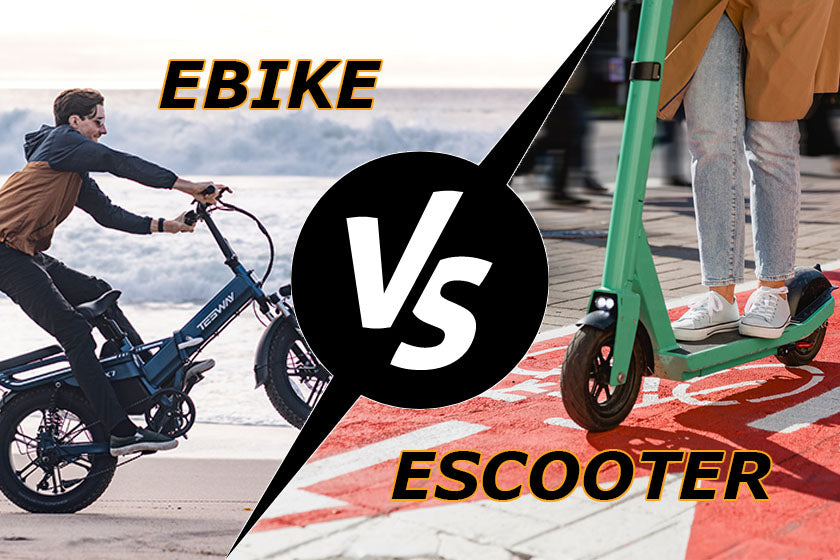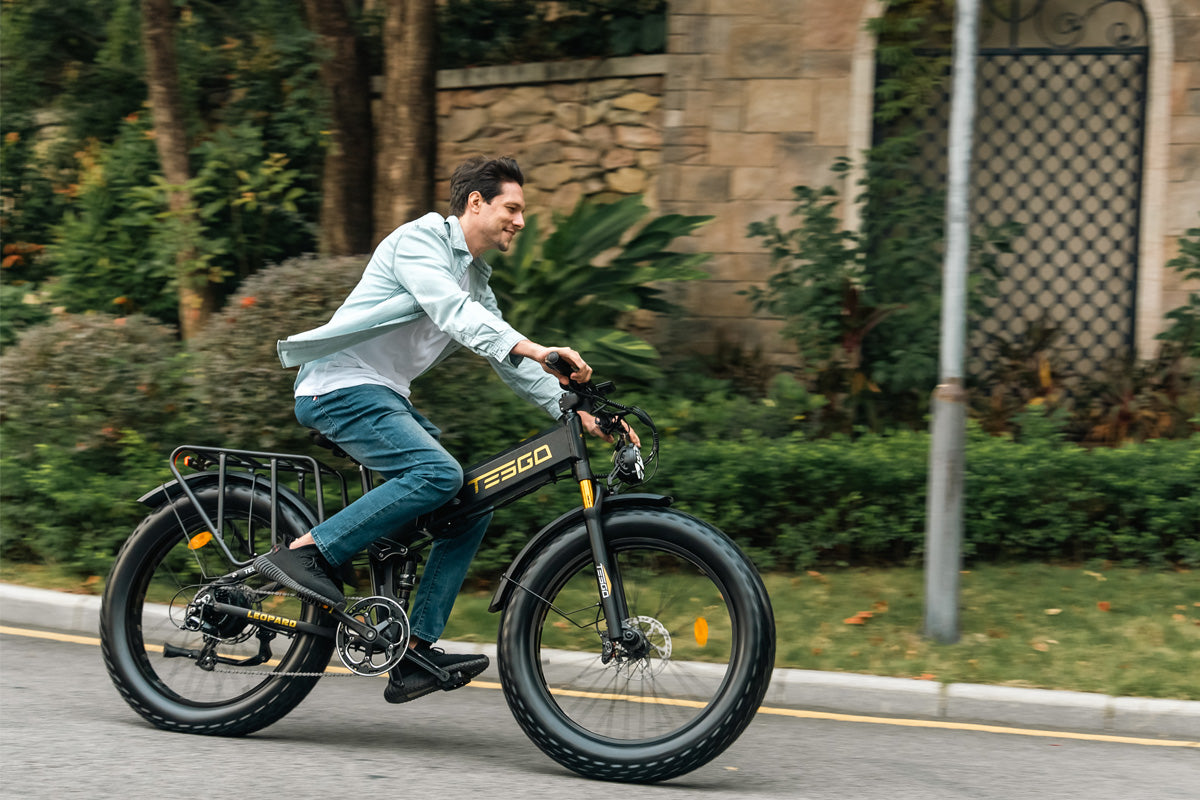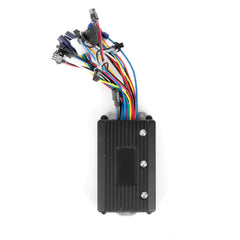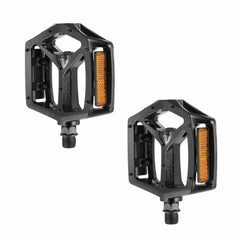
Urban Mobility: Embracing E-Bikes' Convenience for City Transport
Transportation that is both effective and ecological is essential in the hectic world of urban living. It is crucial to create practical and environmentally sustainable mobility solutions as cities expand and traffic congestion worsens. This in-depth guide will examine the growing urban mobility trend as well as the practicality of electric bikes (e-bikes) as a revolutionary new mode of transportation for city commuters.
Navigating the Urban Landscape with E-Bikes: The Development of Urban Mobility
The demand for effective city transportation solutions has never been higher due to the increase in urbanization. Traffic congestion, air pollution, and accessibility issues are common with older urban transportation methods like autos and public transportation. Cities all around the world are rethinking urban mobility to solve these problems, emphasizing building dependable and practical transit systems.
- The Transition to Sustainable Transportation: Cities are focusing on eco-friendly transportation options as the worldwide movement toward sustainability grows. The promotion of cleaner air and the reduction of greenhouse gas emissions have become important priorities. Urban designers and regulators are responding by putting in place measures like bike lanes, pedestrian zones, and low-emission zones to promote the usage of greener transportation options.
- Adopting Multi-Modal Mobility: One particular form of transportation is not the only option for urban mobility. Instead, the emphasis is on adopting multi-modal mobility, in which commuters effortlessly integrate different forms of transportation. By connecting several forms of transportation, this strategy hopes to make it simple for commuters to switch between walking, cycling, taking public transportation, and other modes.
Introducing Electric Bikes: A Radical Urban Transportation Alternative
Among the many possibilities for city transportation, electric bikes have become a ground-breaking and practical option. E-bikes are the perfect option for urban commuters since they combine the advantages of regular bicycles with electric assist technology.
- Mechanics of Electric Bikes: A modest electric motor and a rechargeable battery are features of e-bikes. The motor helps the rider's pedaling effort so they can move along with less physical strain. Riders can customize the ride to suit their preferences and the terrain by selecting from various levels of assistance.
- Benefits of E-Bikes for Urban Transportation: E-bikes are a popular option among city dwellers since they provide several advantages for commuters:
- Time-Saving Commutes: Riders of e-bikes can avoid traffic jams, resulting in commutes that are quicker and more effective. Commuters can navigate congested streets with ease, saving precious time on their daily commutes.
- Environmentally Friendly Transportation: E-bikes help to improve air quality and reduce greenhouse gas emissions because they have no emissions. Urban commuters actively contribute to the fight against climate change and the advancement of sustainable living by choosing e-bikes over cars.
- Last-Mile Connectivity: Using e-bikes as a feasible last-mile connectivity option enables commuters to get where they're going without exclusively using public transportation or traveling great distances on foot.
- Cost-Effective Commuting: E-bikes are much less expensive to operate than conventional cars. They offer significant long-term savings because they require no maintenance and don't cost anything to fuel.
- Increased Cardiovascular Health and Overall Well-Being: Riding an e-bike is a moderate type of exercise that promotes cardiovascular health and general well-being. Commuters can benefit from the clean air and the independence of cycling while traveling.
Highlighting E-Bike Convenience for Urban Life
Other modes of transportation cannot compare to the level of convenience provided by e-bikes. Their appeal to urban commuters is greatly influenced by this convenience.
- Parking and storage flexibility: Due to the scarcity of parking places and the high cost of parking, parking in metropolitan areas is a major challenge. E-bikes offer a solution to this issue by requiring little parking space. They provide a great deal of parking versatility because they can easily be secured to bike racks, poles, or even taken inside.
- Getting Around Traffic Jams: Cars frequently become stranded in traffic for long periods in crowded city streets. As opposed to this, e-bike riders may easily navigate around traffic, taking detours and other shortcuts to get where they're going more quickly.
- Commuting by many modes and e-bikes: Multi-modal commuting is made simple by the easy integration of e-bikes with other forms of transportation. The rest of the route can be completed by buses, trains, or subways as commuters store their electric bikes at transit stops.
- E-bikes and accessibility: To ensure that everyone can use transportation options, regardless of age or physical ability, accessibility is essential for urban mobility. E-bikes offer an aided riding experience that accommodates a variety of fitness levels and mobility restrictions, making them suitable for a wide spectrum of riders.

Resolving Challenges: Handling E-Bike Concerns
Although e-bikes have many advantages, some potential customers have some worries and misunderstandings. To encourage more individuals to utilize e-bikes for urban commuting, these barriers must be removed.
- Range Anxiety: The dread of running out of battery while cycling is known as range anxiety. Modern e-bikes, on the other hand, have cutting-edge batteries that offer enough range for the majority of metropolitan trips. Riders can get over range anxiety by knowing their e-bikes' range limits and designing their itineraries appropriately.
- Safety Considerations: When it comes to urban mobility, safety is of the utmost importance. E-bike users should observe traffic regulations, dress safely, and use defensive cycling techniques. Urban areas can be made safer by promoting traffic safety education for e-bike riders and other drivers.
- Bicycle Infrastructure: The availability of secure and well-kept bicycle infrastructure is essential for promoting the use of e-bikes. To support and safeguard riders of e-bikes, cities should continue to invest in bike lanes, bike paths, and cycling-friendly infrastructure.
The Future of Urban Mobility: E-Bikes as a Change Catalyst
E-bikes are well-positioned to play a big role in influencing the future of urban mobility as cities continue to develop and look for sustainable transportation options.
- Increasing E-Bike Infrastructure: Interest in enhancing and extending bicycle infrastructure has increased as e-bikes' appeal grows. Cities are spending more money on bike lanes, dedicated cycling routes, and bike-sharing programs, all of which make cities more bike-friendly.
- Assistance from and incentives from the government: Some cities and governments provide incentives and assistance to e-bike users to encourage the use of e-bikes. This includes financial aid for e-bike purchases, tax breaks, and grants for e-bike infrastructure initiatives. Cities may encourage more people to use e-bikes by providing incentives for their adoption.
- The incorporation of smart cities: Urban mobility has a lot to gain from the inclusion of e-bikes in smart city efforts. Cities may enhance the effectiveness of their bike-sharing programs and other transportation methods by utilizing technology such as GPS monitoring, intelligent parking options, and real-time data.
"The electric bike market is expected to experience rapid global growth in the coming years, says Fortune Business Insights." (Henry Lord, 2023)
Conclusion: E-bikes are revolutionizing urban mobility.
It is crucial to discover sustainable and practical transportation solutions in the fast-paced metropolitan environment. With their practicality and environmental friendliness, e-bikes are at the forefront of the urban transportation revolution.
Urban residents who choose e-bikes can benefit from quicker commutes, lower carbon emissions, and the thrill of cycling through congested city streets. The future of urban transportation depends on cities' continued investment in bicycle infrastructure and the encouragement of e-bike use.
Newletter
Promotions, new products and sales. Directly to your inbox.
Lastest Blog Post





















 US
US
 Canada
Canada

